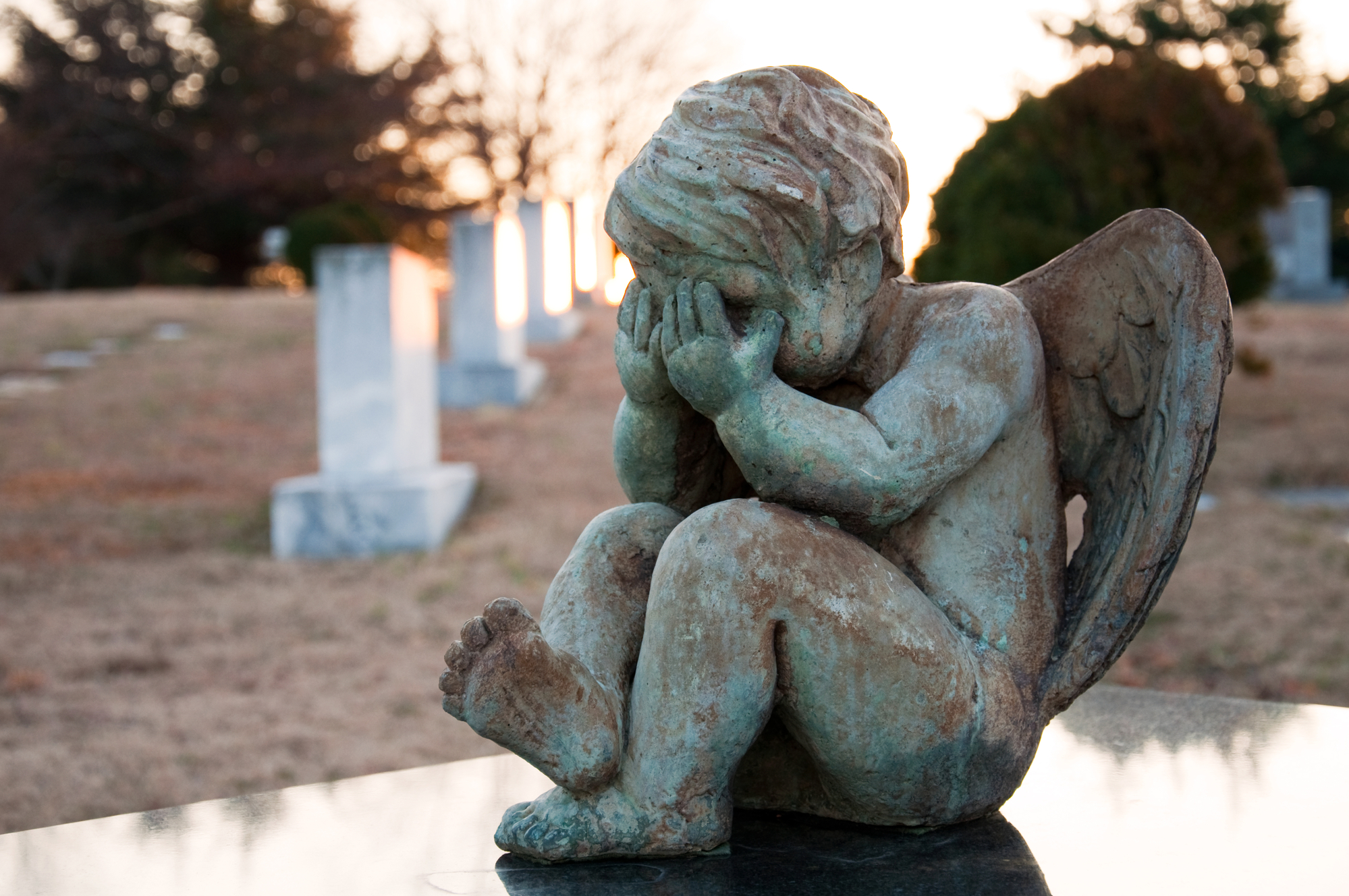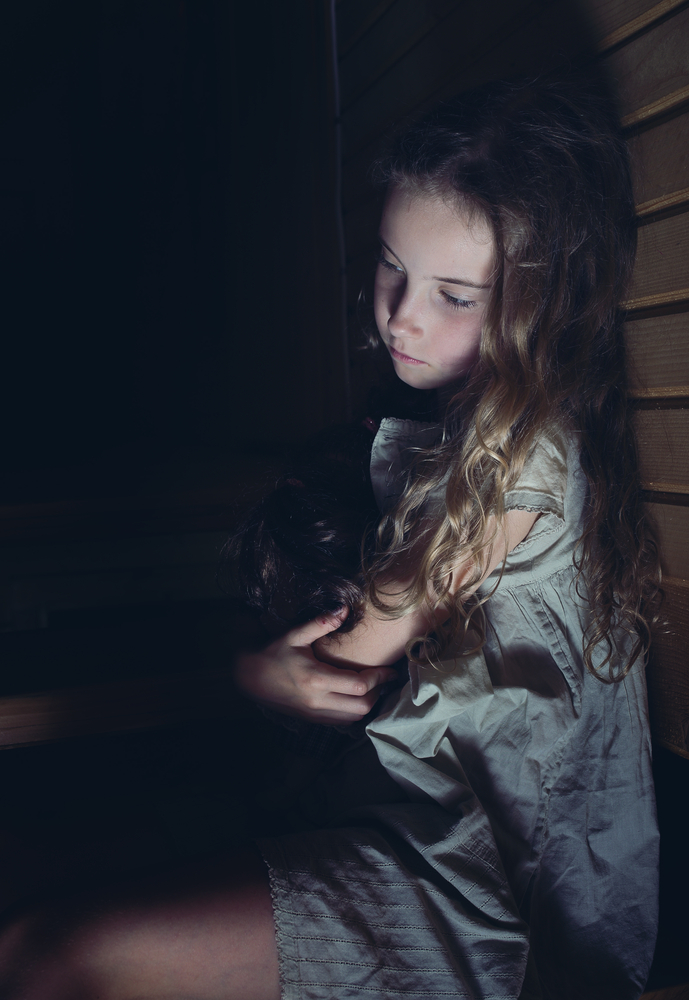BP9
Kari tragically died at the age of seven.

Her heart was still beating and blood continued to flow through her arteries, but she was dead. Emotionally, that is. The death was ruled both a homicide and a suicide.
Kari’s father assisted in her death. But Kari, sadly, played the most deadly part in her demise . . .
The descendent of a hard-working, Stoical Scandinavian man who emigrated to America from Sweden in the late 1800s, John Mattsson was a religious man who read his Bible and attended church every Sunday.
Unfortunately, he did not have the content of faith—a personal relationship with Jesus Christ. He only had the form of religion.
In other words, he was a legalist who believed that he had to be good and do good to be loved by God. He had noble intentions, but he missed the core of God’s message to humanity, namely, that he could not save himself. Only God could save him from his fallen and dark heart.
John’s version of Christianity was more of an anthropology than a theology—man-centric, not God-centric.
Consistent with his religion that was founded on self-sufficiency instead of God-sufficiency, John went through life trying to be a moral man. Of course, he was not always perfect.
He coveted his neighbor’s one-ton pickup truck; he felt frequent bitterness toward his mother when she repeatedly hen-pecked him about raising his kids correctly; he was often aloof and wooden around his children; and sometimes, he thought about the pastor’s wife in a way that certainly would not qualify as holy.
But he tried hard to be a moral man and felt satisfied overall with his performance.
Above all, being good for John meant not being angry. After all, everyone in his family was nice–rarely upset and only then silently. Conflict was avoided, anger was swallowed, and everything was peaceful. On the outside, at least.
As far as anyone in the Mattsson family could remember, no one had been a truly angry person—at least not since great-grandmother Gladys. She was an outlaw. She had married into the family and was not well versed in the Mattson way.
Gladys frequently directed venomous words toward her passive aggressive husband who always did the opposite of what she asked of him (he was never angry, however).
She often berated her bastard son, Olaf, who she had ‘acquired’ in a previous relationship when she was a teenager. Olaf was a stubborn boy, as many boys are, and Gladys did not hesitate to beat him if he disobeyed her.
Olaf was a most visible symbol of shame in her life that she would never be able to hide unless she locked him up in the chicken coop. His presence would forever announce to the world her mistake that happened in the back of a buggy with a man who went off to the war and never came back.
Olaf was her scarlet letter.

One night, the seething volcano inside Gladys erupted and she set the barn and granary on fire. Hours later, she was whisked away to an insane asylum. She never came home, dying in the asylum two years later.
John’s extended family was not close, but they were nice—very predictable. Most of them attended church but even the few who did not were good people. All smoking, gambling and consumption of alcohol was done in private.
Manners were crucial in the family. There were high expectations placed on the children’s behavior—especially outside the house. Look good and be good was the message pounded into every Mattsson child. Yes, it was the family’s first commandment to look good to the world.
Of course, no one in the family could clearly identify that latent rule. It was an unspoken precept that, like the farmland, was passed on from one generation to the next.
Everything went relatively well in John’s life until his first child, Kari, was born. Unlike her mother–who was nice, well-behaved and quietly walked away whenever she was upset–Kari broke all the unspoken rules about emotions and self-expression in the Mattsson family.
By the time she was eighteen-months-old, Kari had significant temper tantrums. At three years of age, she refused to eat her vegetables. At five, she began resisting her 6:30 bedtime—every night.
Strangely, what bothered John the most was his daughter’s face when she was angry. Her brows twisted, her lips curled and her eyes burned like embers in a fire.
On the one hand, he secretly admired his daughter’s freedom to be real. On the other, John hated the loss of control he felt around the girl whenever she was angry or disobeyed him.
After all, his moral worth was built on his performance as a husband and a father. Everything his daughter did impacted that worth for good or for bad. Thus, her obedience was essential to his value as a human being.
The fateful day that altered the trajectory of Kari’s life occurred a week after her seventh birthday. Ironically, maybe, it occurred at the annual church picnic.
John’s free-spirited daughter was having a wonderful time running around the city park with all the other Lutheran church kids on that Sunday afternoon. John felt the usual dissonance of mirth and shame swirl around in his chest as he watched his daughter play freely with her friends like an untamed horse.
When John happened to glance at his father’s mother, he noted the dark glint in her eyes that communicated the disapproval of generations of Mattssons who had raised obedient children.
Immediately, he called out to Kari to come and stand beside him.
But even after six summonings, his daughter did not come.
Feeling the fiery embers in his own eyes this time, John walked away, brooding, from his grandmother’s lecturing eyes and from his daughter’s refusal to obey. He felt a bind within him that created a tension as loud as waves pounding on the beach during straight line winds.

When they returned home after the picnic, John locked the doors to the house before Kari could come in. The seven-year-old sat on the front steps sobbing for two hours before her father finally opened the door.
The usually stern but woodenly patient father promptly took his daughter down to the basement. As he stomped down the steps, he felt something like an ancient dam break within him.
He proceeded to yell and rant at Kari for over an hour about what an embarrassing and disobedient daughter she was and how she had made him look like a pathetic parent.
He ended his unprecedented and shocking eruption with a stern lecture about God’s commandment to children to obey their parents. Didn’t she know that bad girls wouldn’t go to heaven?
While her father was spewing his lava, Kari felt an eerie darkness fill the room. In her young mind, she imagined ghosts and demons floating through the basement walls. They pointed fingers at her and laughed at her. She was afraid of them. She hated them.
Kari’s face grew hot and her heart raced as the stranger in front of her continued his assault on her child’s heart. She couldn’t know it at the time, but the bridge between her and her father crumbled during the ninety-minute tongue-beating.
Sent to bed without supper, Kari lay shaking in her bed for a long time. She slept little that night because of the big snake slithering around in her stomach. She was afraid something was under her bed.
Kari’s seven-year-old mind tried to figure out what she had done that made her father so angry. Her usually steady parent had turned into somebody else. A stranger. A bad man. He did not give her a calm lecture and send her to her room as was his custom. No, he had dismantled her personality.
The words that kept echoing in Kari’s head were the last one’s her father had spoken as he waved a finger in her childish oval face: If you disobey me like that ever again, I promise I’ll throw you out of this house and you won’t be coming back.
Kari did not know, of course, that her father’s mother had uttered those same words to him decades ago when he was a boy.
Toward morning, Kari finally fell asleep with her lips tightly compressed. The tears that had streamed down her red cheeks for hours were gone.

When she woke up the next morning, Kari was a changed girl. Both parents noticed the amazing transformation. In coming days, other family members noted the change as well.
She began to eat her vegetables and came home when her father called—frequently after the first summoning. Her anger slowly disappeared. Her face was always pleasant. She had become a good Mattsson girl who was nice to everyone.
But she had died in the process.
Join me for the next blog post as we do a post mortem on Kari’s young heart.
Keep your heart with all vigilance, for from it flow the springs of life ~ Proverbs 4:23
